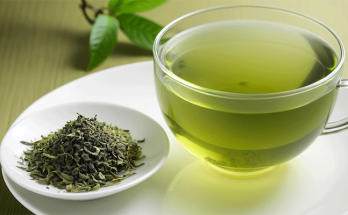
Heart disease and stroke are two of the leading causes of death worldwide. While many factors contribute to these conditions, high cholesterol is a major risk factor. Cholesterol is a fatty substance that is found in the blood. It is essential for some bodily functions, such as building cell membranes and producing hormones.
However, too much cholesterol can build up in the arteries, forming plaques. These plaques can narrow the arteries and reduce blood flow to the heart and brain. This can lead to heart disease, stroke, and other health problems.










What is cholesterol?
Cholesterol is a waxy substance that is found in all animal cells. It is produced by the liver and is also found in some foods, such as meat, eggs, and dairy products. Cholesterol is used by the body to build cell membranes, produce hormones, and help digest fats.
There are two main types of cholesterol:
Low-density lipoprotein (LDL) cholesterol, also known as “bad” cholesterol, is the type of cholesterol that can build up in the arteries and form plaques.
High-density lipoprotein (HDL) cholesterol, also known as “good” cholesterol, helps to remove LDL cholesterol from the arteries.
What is the link between cholesterol and stroke?
High LDL cholesterol levels can increase your risk of stroke in some ways. First, LDL cholesterol can build up in the arteries that supply blood to the brain. This can narrow the arteries and reduce blood flow to the brain. Second, LDL cholesterol can contribute to the formation of blood clots. Blood clots can travel to the brain and block a blood vessel, causing a stroke.
How to lower your cholesterol levels
There are several things you can do to lower your cholesterol levels, including:
Eat a healthy diet: A healthy diet is low in saturated and trans fats and high in fiber. Saturated and trans fats can raise LDL cholesterol levels, while fiber can help to lower them.
Exercise regularly: Exercise helps to lower LDL cholesterol levels and raise HDL cholesterol levels. Aim for at least 30 minutes of moderate-intensity exercise most days of the week.
Maintain a healthy weight: Being overweight or obese can increase your risk of high cholesterol levels. Losing weight can help to lower your cholesterol levels.
Quit smoking: Smoking damages the arteries and can lead to high cholesterol levels. Quitting smoking can help to improve your cholesterol levels and reduce your risk of stroke.
Medicines to lower cholesterol
If you have high cholesterol levels and lifestyle changes are not enough to lower them, your doctor may prescribe medication. There are several different types of cholesterol-lowering medications available, including:
Statins: Statins are the most commonly prescribed type of cholesterol-lowering medication. They work by blocking an enzyme that the liver needs to produce cholesterol.
Bile acid sequestrants: Bile acid sequestrants bind to bile acids in the intestines and prevent them from being reabsorbed into the bloodstream. This lowers LDL cholesterol levels.
PCSK9 inhibitors: PCSK9 inhibitors are a newer type of cholesterol-lowering medication. They work by blocking a protein called PCSK9, which helps to remove LDL cholesterol from the blood.
Here are some additional tips for lowering your cholesterol levels and reducing your risk of stroke:
Get regular cholesterol screenings: Your doctor can test your cholesterol levels with a simple blood test. It is recommended that all adults over the age of 20 have their cholesterol levels checked every 4-6 years.
Manage other health conditions: Certain health conditions, such as high blood pressure and diabetes, can increase your risk of high cholesterol levels. Managing these conditions can help to lower your cholesterol levels and reduce your risk of stroke.
Conclusion
High cholesterol is a major risk factor for stroke. However, there are several things you can do to lower your cholesterol levels and reduce your risk of stroke. These include eating a healthy diet, exercising regularly, maintaining a healthy weight, and quitting smoking. If you have high cholesterol levels, your doctor may also prescribe medication to lower them.









